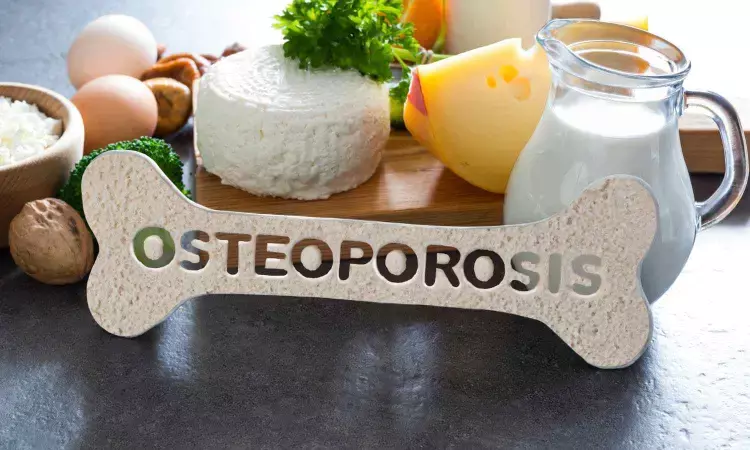- Home
- Medical news & Guidelines
- Anesthesiology
- Cardiology and CTVS
- Critical Care
- Dentistry
- Dermatology
- Diabetes and Endocrinology
- ENT
- Gastroenterology
- Medicine
- Nephrology
- Neurology
- Obstretics-Gynaecology
- Oncology
- Ophthalmology
- Orthopaedics
- Pediatrics-Neonatology
- Psychiatry
- Pulmonology
- Radiology
- Surgery
- Urology
- Laboratory Medicine
- Diet
- Nursing
- Paramedical
- Physiotherapy
- Health news
- Fact Check
- Bone Health Fact Check
- Brain Health Fact Check
- Cancer Related Fact Check
- Child Care Fact Check
- Dental and oral health fact check
- Diabetes and metabolic health fact check
- Diet and Nutrition Fact Check
- Eye and ENT Care Fact Check
- Fitness fact check
- Gut health fact check
- Heart health fact check
- Kidney health fact check
- Medical education fact check
- Men's health fact check
- Respiratory fact check
- Skin and hair care fact check
- Vaccine and Immunization fact check
- Women's health fact check
- AYUSH
- State News
- Andaman and Nicobar Islands
- Andhra Pradesh
- Arunachal Pradesh
- Assam
- Bihar
- Chandigarh
- Chattisgarh
- Dadra and Nagar Haveli
- Daman and Diu
- Delhi
- Goa
- Gujarat
- Haryana
- Himachal Pradesh
- Jammu & Kashmir
- Jharkhand
- Karnataka
- Kerala
- Ladakh
- Lakshadweep
- Madhya Pradesh
- Maharashtra
- Manipur
- Meghalaya
- Mizoram
- Nagaland
- Odisha
- Puducherry
- Punjab
- Rajasthan
- Sikkim
- Tamil Nadu
- Telangana
- Tripura
- Uttar Pradesh
- Uttrakhand
- West Bengal
- Medical Education
- Industry
Bimagrumab may conteract muscle loss and osteoporosis cause by weight loss: Study

Weight loss medication has taken the world by storm and helped many overweight people. But for some, significant weight loss also comes with a loss of muscle mass and can lead to an increased risk of osteoporosis.
New research now suggests that the drug, bimagrumab, may be able to alleviate some of this risk, says PhD student Frederik Duch Bromer and postdoc Andreas Lodberg from the Department of Biomedicine at Aarhus University, who are behind the study.
"We are the first to study how certain drugs affect bones, and the results show that bimagrumab can increase the amount of bone tissue while building muscle mass, and this could be very important for the many people currently taking weight loss medication."
Bimagrumab was originally developed to treat muscle loss and dysfunction, but since then, it has beome apparent that it also has a fat “burning” component to it. So, if approved, it could be part of a second-generation weight loss drug on the market.
Therefore, it’s relevant to research how this particular patient group reacts to the drug," says Andreas Lodberg.
"An estimated two billion people will be categorised as overweight by 2035, so it’s also important that we research the drugs that come on the market for this particular patient group in order to better understand their long-term impact on the body."
Osteoporosis can prove costly for patients and society
Patients on weight loss medication often have a history of weight fluctuation, which can contribute to the development of osteoporosis. Brittle bones increase the risk of serious fractures, and this is costly for both patients and society.
Therefore, the research results could be good news for patients on weight loss medication. And according to Frederik Duch Bromer, the study shows that bimagrumab not only counteracts the breakdown of bone and muscle tissue, it actually promotes the build-up of both.
"Bimagrumab slightly increases the calcium content in bones and promotes the formation of new bone in what we call the shell (cortex) of the long bones. We also saw a significant build-up of bone tissue in the area around the femoral head, which is typically where many older people incur fractures."
According to Frederik Duch Bromer, the results also showed that bimagrumab has no effect on the blood. Similar drugs have previously been shown to increase red blood cell production, increasing the risk of blood clots.
The study is based on mice with both osteoporosis and reduced muscle mass, and the drug is now being tested in several phase 2 clinical trials. Andreas Lodberg emphasises that more research is needed.
"Our study shows that bimagrumab has a positive effect in many areas, but we also have indications that the drug may have other side effects, and we’ll now investigate this further to get a clearer picture of the implications of using the drug for patients."
Andreas Lodberg and Frederik Duch Bromer hope to be able to continue with further research to investigate both the positive results and possible side effects.
Reference:
Frederik Duch Bromer, Andreas Lodberg, Marco Eijken, Christian Brix Folsted Andersen, Mathias Flensted Poulsen, Jesper Skovhus Thomsen, Annemarie Brüel, The Effect of Anti-Activin Receptor Type IIA and Type IIB Antibody on Muscle, Bone and Blood in Healthy and Osteosarcopenic Mice, Journal of Cachexia Sarcopenia and Muscle, https://doi.org/10.1002/jcsm.13718.
Dr Kamal Kant Kohli-MBBS, DTCD- a chest specialist with more than 30 years of practice and a flair for writing clinical articles, Dr Kamal Kant Kohli joined Medical Dialogues as a Chief Editor of Medical News. Besides writing articles, as an editor, he proofreads and verifies all the medical content published on Medical Dialogues including those coming from journals, studies,medical conferences,guidelines etc. Email: drkohli@medicaldialogues.in. Contact no. 011-43720751


